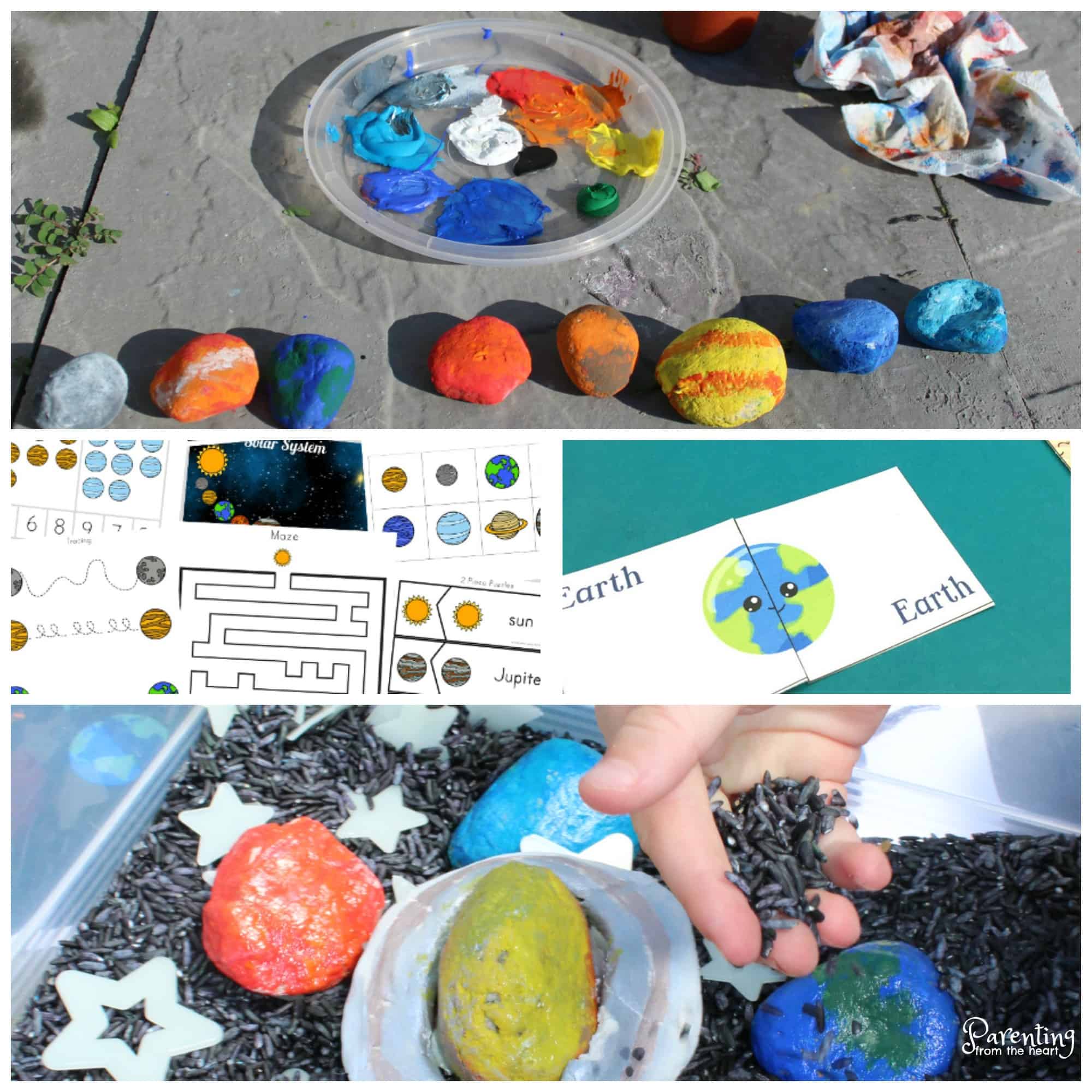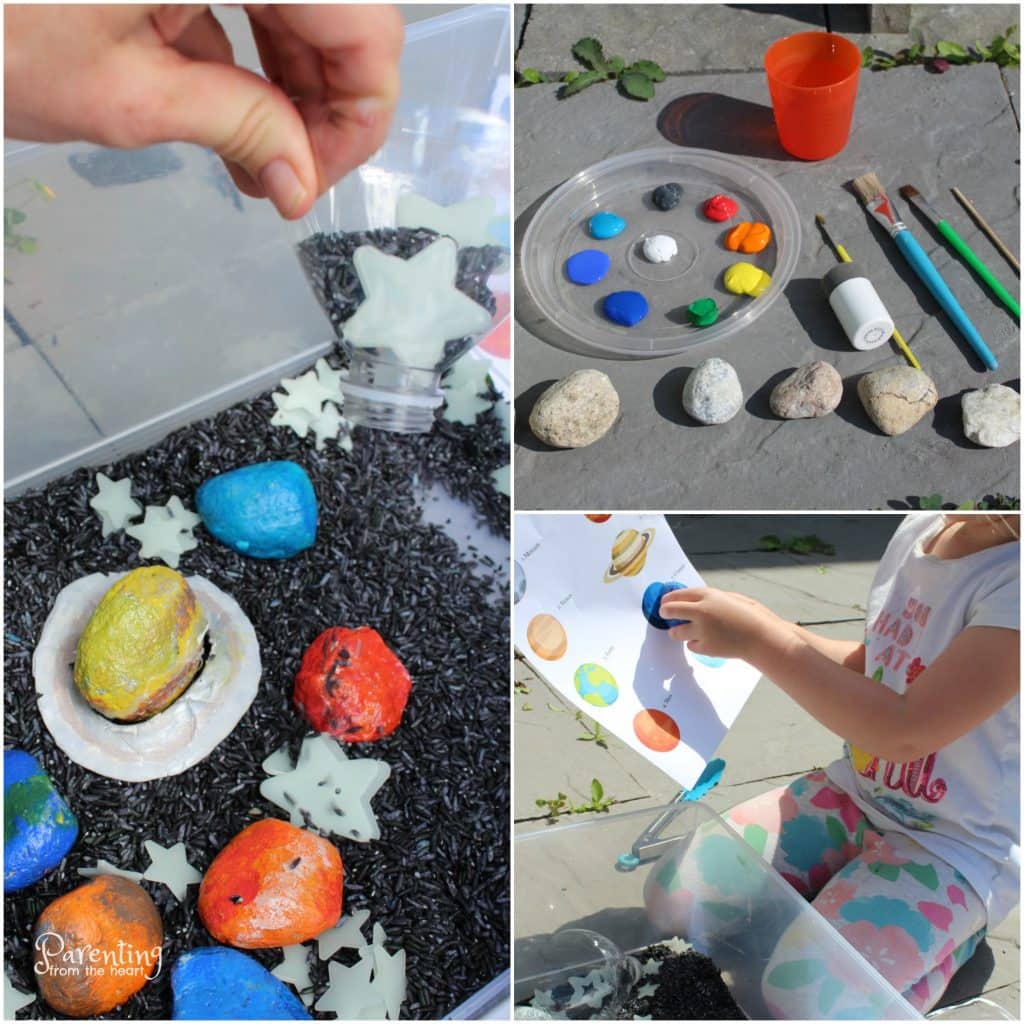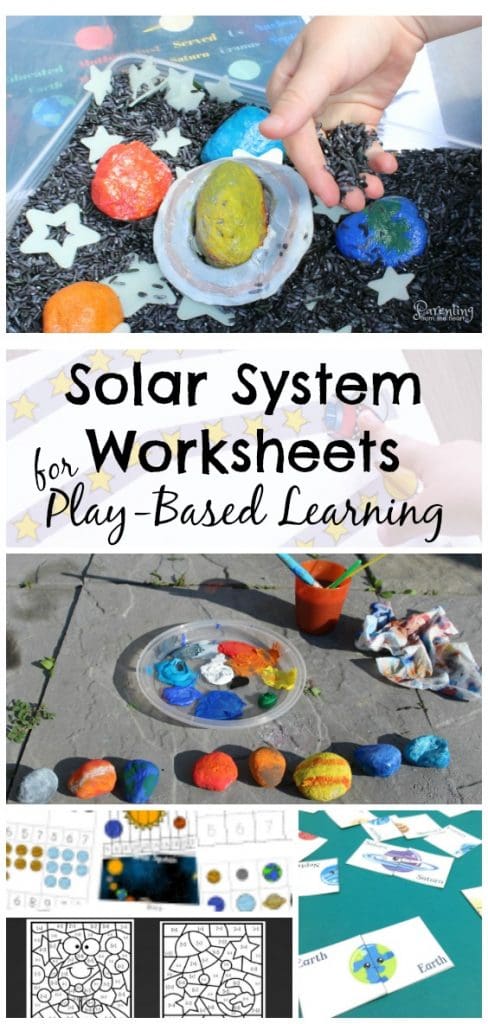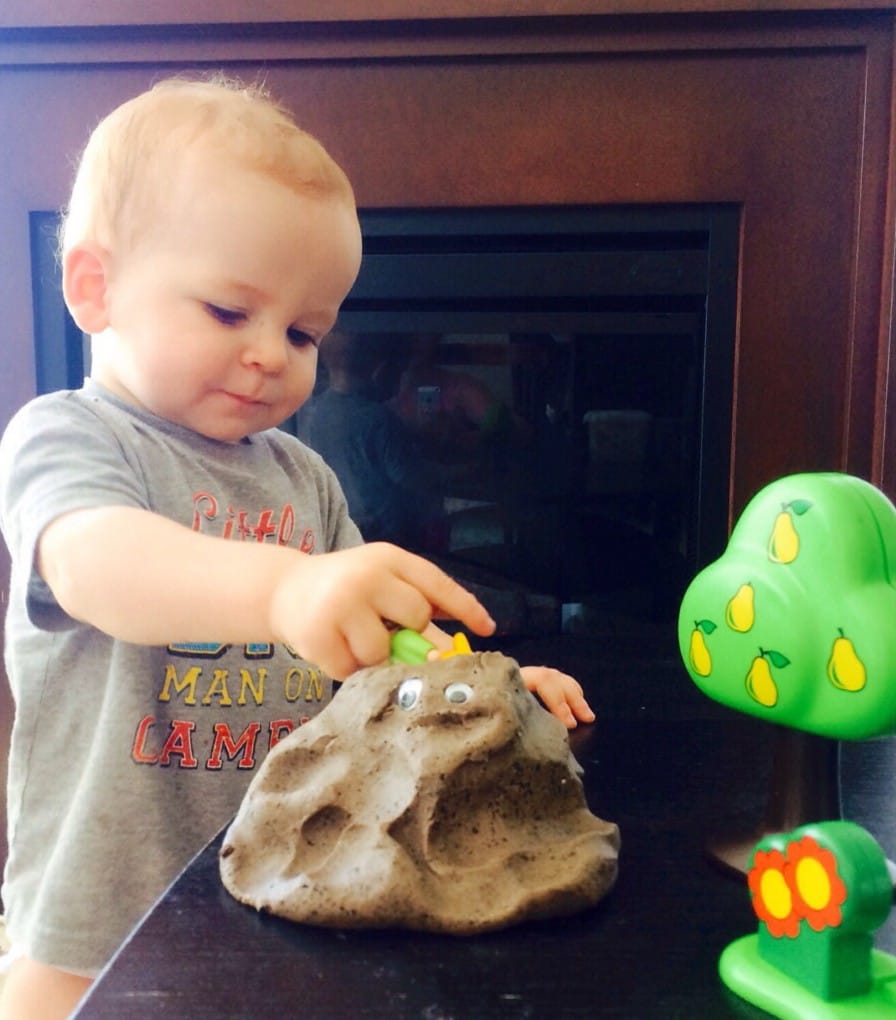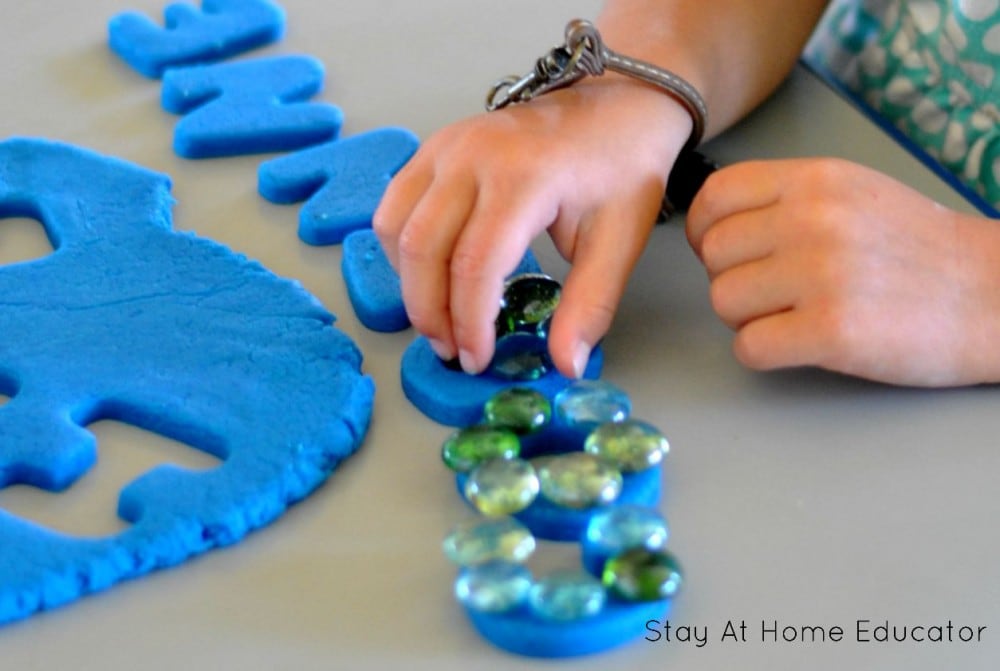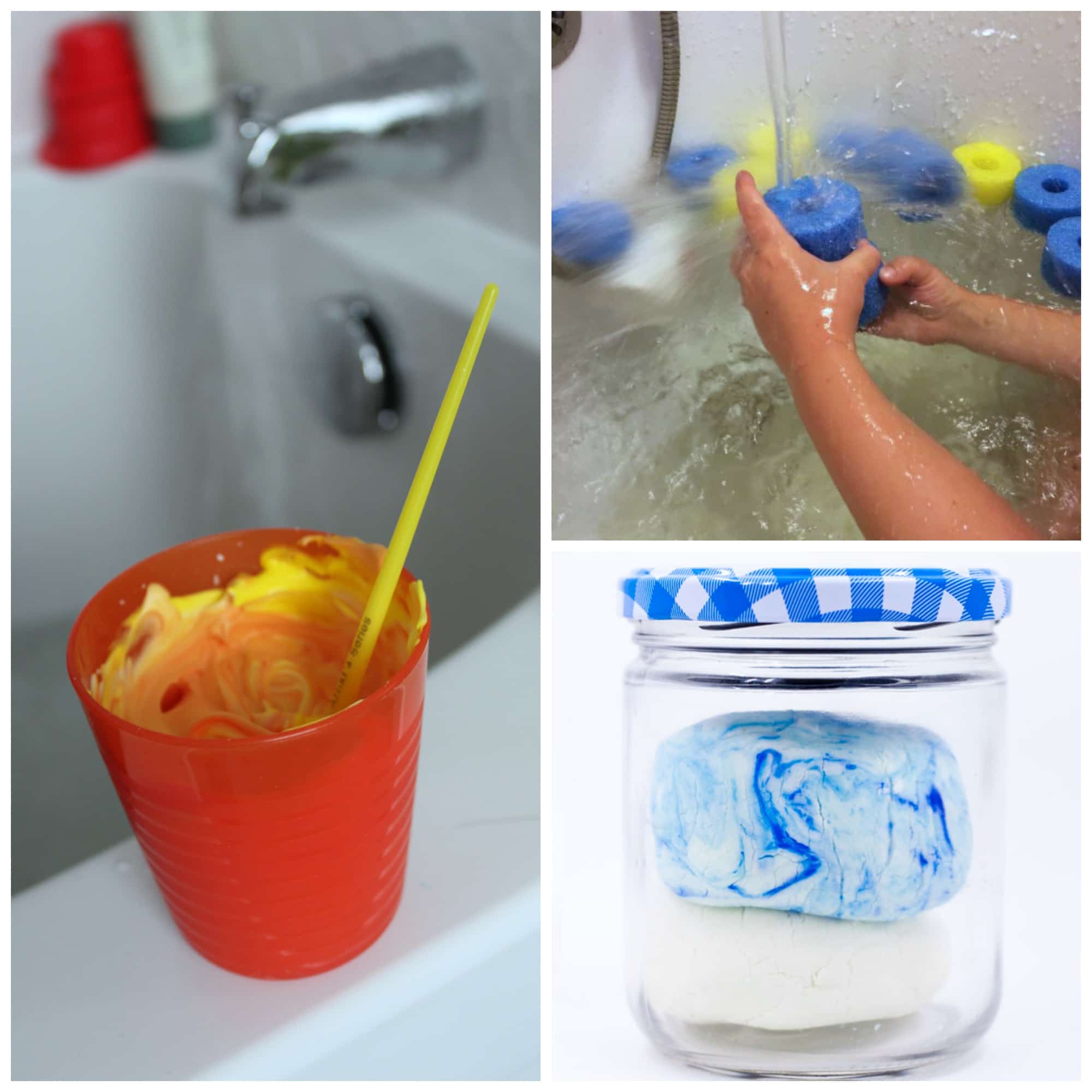10 + solar system worksheets to promote play-based learning! These printables are free, fun and focus on numeracy, literacy, STEM, and sensory learning. Great for astronomy teaching units for preschoolers, kindergarteners, and older kids too!
After hours of playing outside, colouring cardboard boxes, painting with chalk paint, playing t-ball, and riding their bikes, my kids need some down time. One of their favourite things to do right now is print off printables and colour and craft their ways through them. They have a particular affinity for solar system worksheets right now. I’m pretty sure that’s thank to Miles from Tomorrowland.
Recently, I created my own solar system themed printable packet (click the image below to check it out). From it, we’ve made the planets out of rocks, a sensory bin, cut out planets, and arranged them by size. It’s been fun seeing how this one activity has prompted more questions and interest in the solar system. Not only that, but my kids now recognize some of the more obvious planets on their own. They’re four and five-years-old.
Because of this new found interest, I wanted to assemble a number of solar system worksheets that promote play-based learning. All of these solar system printables are free to download. And, they are perfect for preschoolers and kindergarteners. Some are great for older kids too!
Solar System Worksheets for Preschoolers and Kindergarteners
Space Themed Matching Game to promote word recognition // Twitchetts
Solar System Printable Pack to promote numeracy and letter recognition // Fun with Mama
Outer Space Printable for Prewriting Practice // Simple Fun for Kids
Space Printables to work on addition, word and colour recognition // Views from a Step Stool
Outer Space Alphabet Puzzle to learn letter recognition and order of the planets // Teaching Mama
Order of the Planets Easy Reader Book for early literacy // Three Dinosaurs







